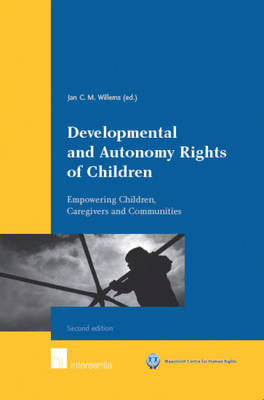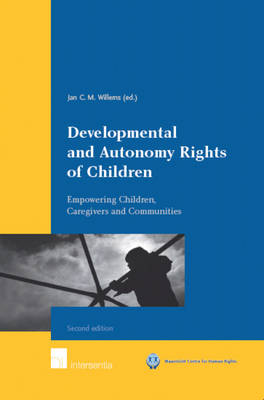
- Afhalen na 1 uur in een winkel met voorraad
- In januari gratis thuislevering in België
- Ruim aanbod met 7 miljoen producten
- Afhalen na 1 uur in een winkel met voorraad
- In januari gratis thuislevering in België
- Ruim aanbod met 7 miljoen producten
Developmental and Autonomy Rights of Children
Empowering Children, Caregivers and Communities
Jan C.M. WillemsOmschrijving
On November 20, 1989, the United Nations unanimously adopted the Convention on the Rights of the Child. November 20 has become a date which signals the recognition by the international community that children have developmental and autonomy rights as essential benchmarks for children themselves and for those responsible for their wellbeing and their healthy physical, emotional, social, moral and intellectual development.
However, as long as early child development, psychological recovery and social reintegration of traumatised and marginalised children and caregivers, preparation for parenthood, parenting education and parenting support, child-friendly community building, as well as international cooperation in all these fields are seriously lacking investment by society and the state, the developmental and autonomy rights of all children, and especially the rights of young children and children living in exceptionally difficult conditions, are soft rights only. The emancipation of the young child and the rehabilitation and emancipation of the deprived, exploited, abused and neglected child remain in a legal shadow land. This book intends to explore this shadow land. It introduces the concepts of the Trias pedagogica and Transism in order to shed light on the obligations and responsibilities of states and other actors in the empowerment of children, caregivers and communities. Its authors hope to serve the field of human rights and family and child studies, and all related fields.
Specificaties
Betrokkenen
- Auteur(s):
- Uitgeverij:
Inhoud
- Aantal bladzijden:
- 212
- Taal:
- Engels
- Reeks:
Eigenschappen
- Productcode (EAN):
- 9789050957267
- Verschijningsdatum:
- 5/10/2007
- Uitvoering:
- Paperback
- Afmetingen:
- 160 mm x 240 mm
- Gewicht:
- 415 g

Alleen bij Standaard Boekhandel
Beoordelingen
We publiceren alleen reviews die voldoen aan de voorwaarden voor reviews. Bekijk onze voorwaarden voor reviews.









